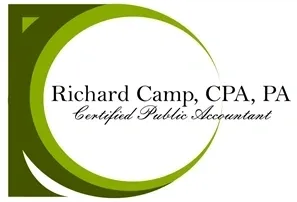Smart Strategies to Handle the “Downfall” Problem 1 in 4 New Businesses Experience
One of the most (if not the most) important indicators of business health is its cash flow. Even if your business is profitable and growing, if you don’t have a consistent stream of cash coming in, you’ll run into financial trouble. Lack of cash flow is the primary reason that more than one quarter of new businesses fail—29 percent to be exact. Here are some smart strategies that can help ease the cash flow crunch.
- Reduce your business overhead. While this may seem obvious, trimming fixed costs is something that many business owners overlook, getting stuck in a this-is-how-we’ve-always-done things rut. Take a fresh look at your operations with the goal of maximizing efficiency.
- Be proactive about securing credit. If you wait until you’re financially strapped before you line up credit sources, you may be in for an unpleasant surprise (e.g., you can’t get the credit you thought you could or the credit you can get is too expensive). Know how you can secure funding before you need it.
- Know your numbers. This is so important—you should have a dashboard of key performance indicators that you follow closely so that you can head-off any cash flow issues before they happen. You can use a DIY approach with business accounting software, or work with our firm to keep you on track.
- Encourage quick payments. An essential key to cash flow management is to keep the cash coming in from customers. Aside from keeping your invoicing current, consider incentives such as early payment discounts on large invoices or discounts for cash payments when appropriate.
With the stakes so high in today’s economy, it’s not surprising that many new businesses struggle with cash flow issues. However, by implementing the strategies above and working with our professional team, you’ll have a better chance to keep the cash coming in and your business going strong.
Richard Camp, CPA, PA blogs and all other multimedia content is provided for informational and educational purposes only and should not be construed as financial tax, accounting, legal, consulting or any other type of advice regarding any specific facts and circumstances, nor should they be construed as advertisements for financial services. Because accounting standards, tax law, and technologies are constantly changing, content in this blog could contain outdated information.
IRS CIRCULAR 230 NOTICE: To ensure compliance with requirements imposed by the IRS, we inform you that any U.S. tax advice contained in this website (or in any attachment) is not intended or written to be used, and cannot be used, for the purpose of (i) avoiding penalties under the Internal Revenue Code or (ii) promoting, marketing or recommending to another party any transaction or matter addressed in this website (or in any attachment).
Richard Camp, CPA, PA blogs and all other multimedia content is provided for informational and educational purposes only and should not be construed as financial tax, accounting, legal, consulting or any other type of advice regarding any specific facts and circumstances, nor should they be construed as advertisements for financial services. Because accounting standards, tax law, and technologies are constantly changing, content in this blog could contain outdated information.
IRS CIRCULAR 230 NOTICE: To ensure compliance with requirements imposed by the IRS, we inform you that any U.S. tax advice contained in this website (or in any attachment) is not intended or written to be used, and cannot be used, for the purpose of (i) avoiding penalties under the Internal Revenue Code or (ii) promoting, marketing or recommending to another party any transaction or matter addressed in this website (or in any attachment).
Richard Camp, CPA, PA blogs and all other multimedia content is provided for informational and educational purposes only and should not be construed as financial tax, accounting, legal, consulting or any other type of advice regarding any specific facts and circumstances, nor should they be construed as advertisements for financial services. Because accounting standards, tax law, and technologies are constantly changing, content in this blog could contain outdated information.
IRS CIRCULAR 230 NOTICE: To ensure compliance with requirements imposed by the IRS, we inform you that any U.S. tax advice contained in this website (or in any attachment) is not intended or written to be used, and cannot be used, for the purpose of (i) avoiding penalties under the Internal Revenue Code or (ii) promoting, marketing or recommending to another party any transaction or matter addressed in this website (or in any attachment).
